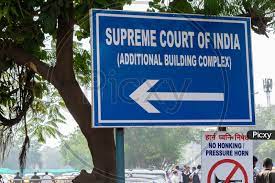It was urged, based on the case pleaded therein, that the decree put to execution was in executable. The Executing Court, on 19th March, 2008, allowed the objections of the respondents 1 to 3, resulting in dismissal of the execution application. (Para 1)
The High Court, by its judgment and order dated 4th February, 2011, quashed the order passed by the Revisional Court and relegated the parties to the remedy of having their rights, in respect of the suit property, adjudicated by the appropriate forum. (Para 3)
The decree signed by the Trial Court on 11th November, 1991 is not on record. Nevertheless, at the cost of repetition, we record that examination of the order dated 5th August, 1991 does not reveal any adjudication leading to determination of the rights of the parties in relation to any of the matters in controversy in the suit and, therefore, the decree since drawn up is not a formal expression of an adjudication/determination since there has been no adjudication/determination so as to conform to the requirements of a decree within the meaning of section 2(2). In this regard, we express our concurrence with both the High Court and the Executing Court that there is no decree at all in the eye of law. (Para 50)
We, therefore, hold that a decree that follows a judgment or an order (of the present nature) would be inexecutable in the eyes of law and execution thereof, if sought for, would be open to objection in an application under section 47, CPC. (Para 51)
For the reasons mentioned above, we conclude that the Trial Court had no authority to decree the suit against Samiullah in exercise of its power under Rule 10 of Order VIII, CPC. (Para 52)
There is no reason to interfere with the judgment and order of the High Court under challenge. It is upheld and the appeal, accompanied by any pending applications, stands dismissed. Parties shall bear their own costs. (Para 53)
It is, however, made clear that no part of the observations of this Court, or of the High Court or of those below, be treated as an expression of opinion in any particular matter or on any factual aspect whatsoever. Determination of the title to the suit property, adjudication on the validity of the sale deed in favour of the Purchasers, or decision on any other contentious issue are left open for a forum of competent jurisdiction to embark upon, if approached by any of the parties. (Para 54)
SUPREME COURT OF INDIA
2024 STPL(Web) 34 SC
[2024 INSC 36]
Asma Lateef & Anr. Vs. Shabbir Ahmad & Ors.
Civil appeal no. 9695 of 2013-Deacided on 12-1-2023
https://stpllaw.in/wp-content/uploads/2024/01/2024-STPLWeb-34-SC.pdf







